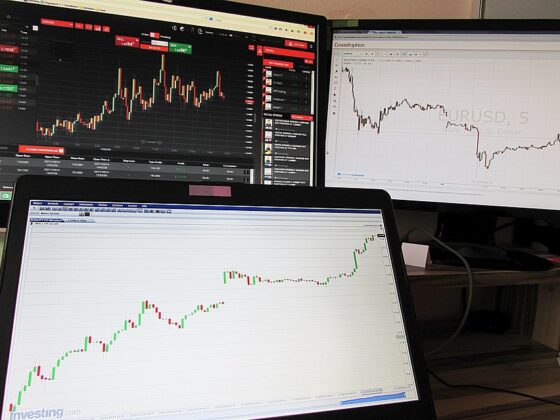Trading can be an incredibly lucrative venture for those who are willing to put in the time and effort to learn the ins and outs of the market. However, many beginners make common mistakes that can cost them dearly. In this article, we will discuss some tips for successful trading as a beginner and how to avoid these common pitfalls.
1. Educate Yourself
One of the most important things you can do as a beginner trader is to educate yourself about the market. This includes learning about different trading strategies, risk management techniques, and how to analyze market trends. There are countless resources available online, including books, webinars, and online courses, that can help you better understand the world of trading.
2. Start Small
When you are first starting out, it can be tempting to jump in with both feet and start trading large amounts of money. However, this is a mistake that can lead to significant losses. Instead, start small and only trade with money that you can afford to lose. This will allow you to gain experience and learn from your mistakes without risking your entire investment.
3. Have a Trading Plan
Before you start trading, it is essential to have a trading plan in place. This plan should outline your goals, risk tolerance, and trading strategy. By having a plan in place, you will be better equipped to make informed decisions and stick to your trading strategy, even when emotions are running high.
4. Keep Emotions in Check
One of the biggest mistakes that beginner traders make is letting their emotions dictate their trading decisions. Fear and greed can lead to impulsive decisions that can result in significant losses. It is essential to keep your emotions in check and stick to your trading plan, even when the market is volatile.
5. Use Stop Loss Orders
A stop loss order is a tool that allows you to set a predetermined price at which you will sell your assets to limit losses. By using stop loss orders, you can protect yourself from significant losses and avoid emotional decision-making in the heat of the moment.
6. Diversify Your Portfolio
Another common mistake that beginners make is putting all of their eggs in one basket. It is essential to diversify your portfolio and spread your investments across different assets and industries. This will help protect you from significant losses if one sector of the market underperforms.
7. Keep Learning
The market is constantly evolving, and successful traders are those who are willing to adapt and continue learning. Make it a habit to stay up to date on market trends, economic news, and new trading strategies. By staying informed, you will be better equipped to make informed decisions and stay ahead of the curve.
FAQs
Q: How much money do I need to start trading?
A: The amount of money you need to start trading will depend on the assets you are trading and your risk tolerance. It is recommended to start small and only trade with money that you can afford to lose.
Q: How do I choose a trading platform?
A: When choosing a trading platform, it is essential to consider factors such as ease of use, fees, customer service, and the assets available for trading. Take the time to research different platforms and choose one that best suits your needs.
Q: Is trading risky?
A: Trading can be risky, and it is essential to understand the risks involved before getting started. However, by educating yourself, having a trading plan, and using risk management techniques, you can minimize your risk and increase your chances of success.
In conclusion, trading as a beginner can be a challenging endeavor, but by following these tips and avoiding common mistakes, you can increase your chances of success. Remember to educate yourself, start small, have a trading plan, keep emotions in check, use stop loss orders, diversify your portfolio, and continue learning. By doing so, you will be well on your way to becoming a successful trader.











